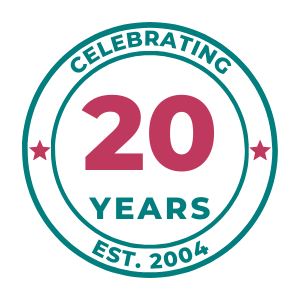College Admissions Tips and Guidance
What You Need To Know About College-Specific Essays: Advice From Admissions Officers

Explore Our Articles
Recent Posts
Popular Categories
Get In Touch
On Social
By Phone or Text
(617) 734-3700
By Mail or Email
1678 Beacon Street
Brookline, MA 02445
By Form
Educational Advocates
Our objective is to guide the family in finding options where the student will not only get admitted, but thrive and find success once on campus.
What You Need To Know About College-Specific Essays: Advice From Admissions Officers

Before writing your essays, research the college and connect yourself and your interests to its offerings.
Students spend lots of time and energy on their main Common Application essay and sometimes rush through their college-specific essays (supplemental essays) without much thought or care. College admissions officers report that supplemental essays play an increasingly important role in the college application process. A supplemental essay is an extra essay beyond the personal statement or the primary application essay. These are college-specific essays and typically ask a question such as, “On our campus, students engage with individuals from a variety of socioeconomic backgrounds, races, ethnicities, religions, and perspectives during the course of their educational and social experiences. In 250 words, please share the benefits you see in engaging with a diverse body of students, faculty, and staff,” or “Please tell us why XYZ College is a good fit for you and what specifically has led you to apply for admission.”
Understand What Each College Represents and Offers
Applying to college is a process of self-discovery and reflection. Students should spend time thinking about what they want in college and why. Research the schools to which you plan to apply; read the mission statement and identify what resonates with you. Make a list of what makes each college a good fit for you and what you would bring to that campus to add value. This is essential if you want to understand the college and will help you when you tackle the “Why this college?” prompt asked by many schools.
“Show that you’ve done your research. Get started early. Know yourself and our college,” says Gil Villaneuva, vice president of enrollment at Rhodes College and former president and chair of The Common Application Board of Directors.
In addition to students saying why they like the college, admissions officers want to know what each student will bring to their campus. Colleges want to admit students who will get involved on campus by staffing the newspaper, DJing a radio show, performing in orchestra, filling the intramural sports rosters, and volunteering in the community. They look to see if you were engaged in your high school or community as a way to see where you might fit on campus.
Mr. Villaneuva also cautioned students about choosing sensitive topics. “Don’t present yourself in a way that leads us to question your emotional health. If your story is one of struggle, be sure it has a happy ending. “
Admissions officers also warned against using the space to discuss a relative who attended the college unless that story somehow tells more about the applicant. Understanding a college’s admission process is key to writing a strong essay.
The Admissions Committee and Application Review
Every college has its own process for reviewing applications and how essays are used. Grace Cheng, former director of admission at Wellesley College, also spent nine years in Harvard University’s admissions department. She says that admissions counselors, some faculty, and even some undergraduate students review applications at Wellesley. They have no cut-offs regarding GPA or test scores, and they read every essay. Other colleges may read in a committee or pair two admissions staff together to read and decide on the application.
Link Your Academic Interests To Your Experiences
The takeaway message: know yourself and what you want from college. If you want to study engineering and are asked why, then be sure to share a story about a maker experience, such as your robotics team, an engineering research project, or your work creating the stage set for the school musical. If you are not sure about a major and are asked about academics, focus on the classic liberal arts and science curricula and be prepared to discuss what academic areas you want to explore in college and why. Connect those reasons to your background and experiences by sharing a story that brings your points to life.
Start thinking about your supplemental questions early—the questions are usually available on August 1st. Since admissions staff will review your responses carefully, your answers to these questions can significantly impact your admissions decision.
It isn’t easy to know how an essay will impact the admissions decision. According to Katharine Hager, admission officer at Boston College, ninety percent of the personal statement essays that BC reads are of average quality, and the admissions committee is basing its decision more on the student’s academic record and extracurricular contributions.
“Five percent of the essays are amazing and lead to an accepted decision and another five percent are disappointing, leading to a denial,” said Hager.
In short, most of the time the personal essay for college does not impact the admissions decision. That is one reason why college-specific supplemental essay questions are becoming increasingly important. College admissions officers also realize that students get more help on their Common Application essays than on their supplemental essays, so the latter is a better gauge of the student’s effort, writing ability, and genuine voice.
Focusing on college-specific supplemental essays is crucial as they provide a better gauge of the student’s individual effort and genuine voice. For tailored guidance in crafting compelling essays, consider our college essay help.
Learn more about how the Educational Advocates team guides students in the college admissions & essay writing process by scheduling an introductory interview with a college admission consultant.









